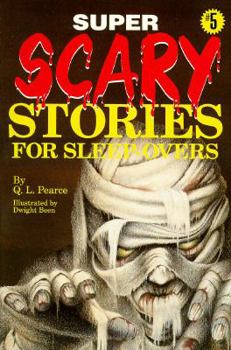Super Scary Stories for Sleep-Overs (#5)
(Book #5 in the Scary Stories for Sleep-overs Series)
Select Format
Select Condition 
Book Overview
Presenting a new interpretation of humanist historiography, Donald J. Wilcox traces the development of the art of historical writing among Florentine humanists in the fifteenth century. He focuses on... This description may be from another edition of this product.
Format:Paperback
Language:English
ISBN:0843139153
ISBN13:9780843139150
Release Date:August 1995
Publisher:Price Stern Sloan
Length:128 Pages
Weight:0.44 lbs.
Dimensions:0.3" x 6.0" x 9.0"
Age Range:9 to 12 years
Grade Range:Grades 4 to 7
Customer Reviews
0 rating





